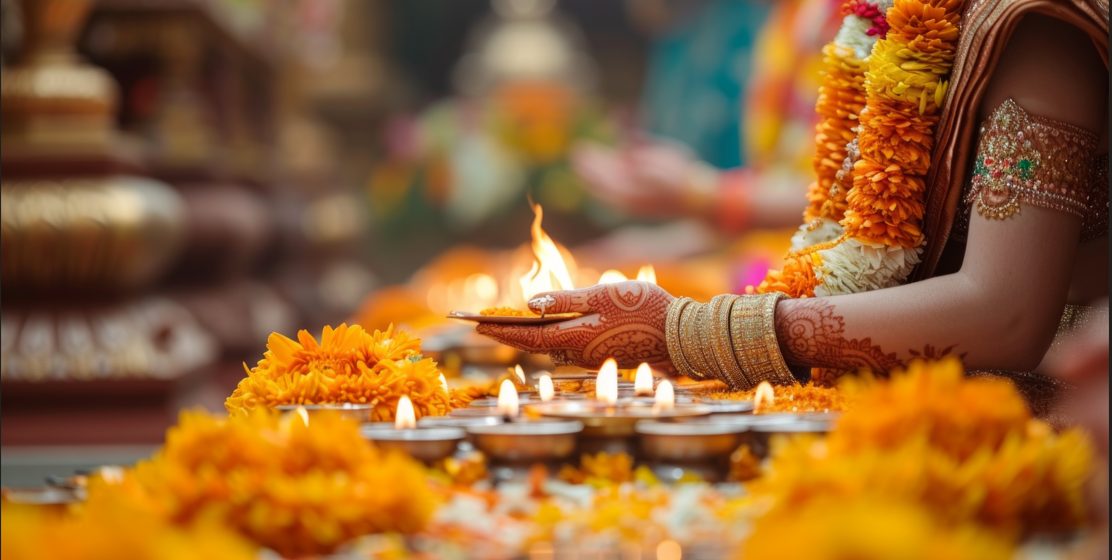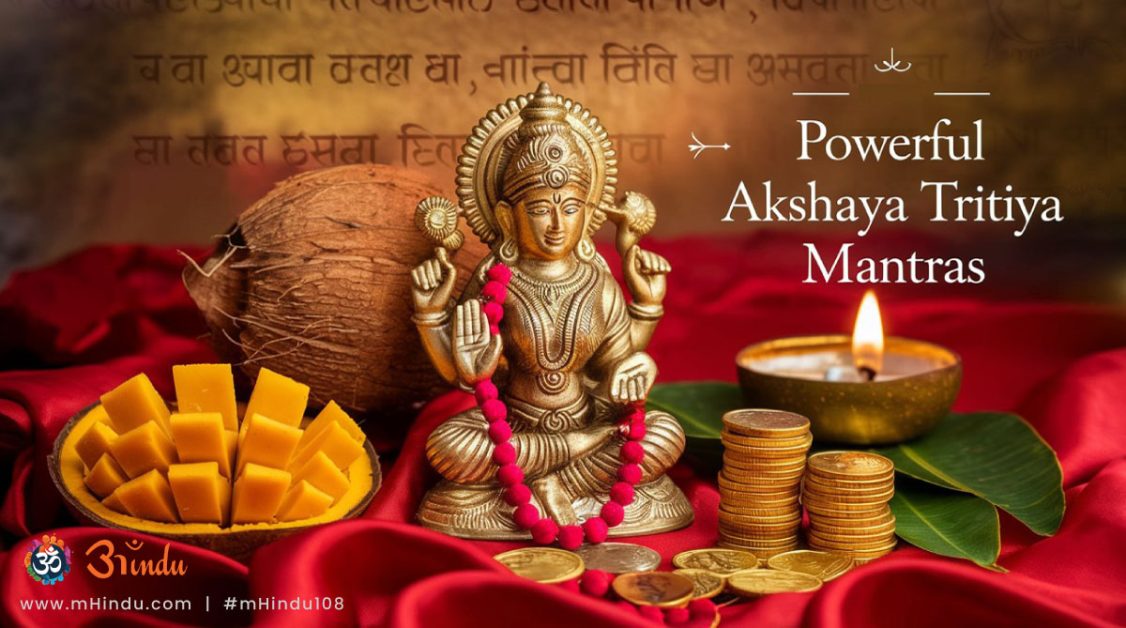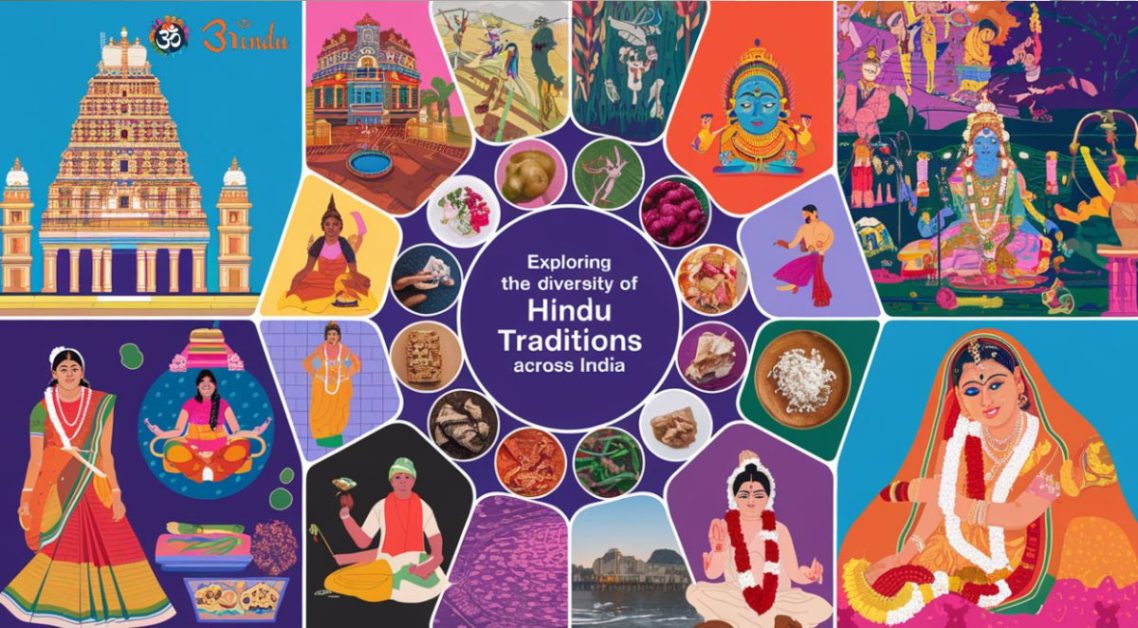
In the intricate tapestry of Hindu life, where tradition and spirituality intertwine, the role of rituals in fostering and maintaining family bonds is paramount. These sacred practices, passed down through generations, serve as powerful anchors, connecting family members to their shared heritage and to each other. This exploration delves into the significance of rituals in strengthening family bonds within the context of Sanatan Dharma.
Explore Blog Content
ToggleThe Sacred Thread of Tradition: Rituals as Family Connectors
Rituals, in the context of Hindu families, are not mere formalities; they are vibrant expressions of love, devotion, and shared identity. They provide a structured framework for families to come together, participate in meaningful activities, and reinforce their connection to their cultural and spiritual roots. These practices weave a sacred thread that binds family members across generations, creating a sense of belonging and continuity.
"A family that prays together stays together. Rituals are not just about tradition; they are about connection and continuity."Dr. A.P.J. Abdul Kalam
Unveiling the Power of Family Rituals
- Creating Shared Experiences: Family rituals provide opportunities for shared experiences, creating lasting memories and strengthening emotional bonds. Whether it’s a simple daily puja or an elaborate festival celebration, these moments of togetherness foster a sense of unity and shared purpose.
- Reinforcing Cultural Identity: Rituals serve as powerful tools for transmitting cultural values and traditions from one generation to the next. By participating in these practices, children learn about their heritage, understand their roots, and develop a sense of pride in their cultural identity.
- Strengthening Spiritual Connection: Many Hindu rituals are deeply rooted in spirituality, providing families with opportunities to connect with the divine. These practices can foster a sense of shared faith, promote spiritual growth, and create a sense of peace and harmony within the family.
- Promoting Emotional Bonding: Rituals often involve acts of love, care, and service, which can strengthen emotional bonds between family members. For example, preparing food for a festival together, offering prayers for each other’s well-being, or performing aarti together can create a sense of intimacy and connection.
- Establishing Family Traditions: Rituals help establish family traditions that are unique to each family. These traditions can become cherished customs that are passed down through generations, creating a sense of continuity and shared identity.
- Providing Structure and Stability: In a world of constant change, rituals provide a sense of structure and stability for families. They create a predictable rhythm to family life, offering a sense of security and continuity.
"Tradition is not the worship of ashes, but the preservation of fire."Swami Vivekananda
Sanatan Dharma Family Rituals: A Tapestry of Tradition
- Daily Puja: The Foundation of Family Spirituality: Daily puja is a fundamental ritual in Hindu families, providing an opportunity for family members to come together, offer prayers, and seek blessings. This practice fosters a sense of shared spirituality and creates a peaceful and harmonious atmosphere in the home.
- Festival Celebrations: Moments of Joy and Togetherness: Festivals like Diwali, Holi, and Navratri are celebrated with great enthusiasm in Hindu families. These occasions provide opportunities for family members to come together, participate in rituals, share meals, and celebrate their cultural heritage.
- Life Cycle Rituals: Marking Significant Milestones: Hindu families observe a variety of life cycle rituals, such as naming ceremonies, thread ceremonies, and weddings, to mark significant milestones in an individual’s life. These rituals provide opportunities for family members to come together, celebrate, and offer blessings.
- Shraddha Rituals: Honoring Ancestors: Shraddha rituals are performed to honor ancestors and seek their blessings. These practices help families maintain a connection to their lineage and express gratitude to their forefathers.
- Home-Based Rituals: Creating Sacred Spaces: Hindu families often perform rituals at home to create sacred spaces and invite divine blessings. These practices can range from simple offerings to elaborate homas (fire rituals).
The Impact of Rituals on Family Dynamics
- Improved Communication: Rituals often involve chanting, singing, and storytelling, which can improve communication and create opportunities for family members to share their thoughts and feelings.
- Enhanced Understanding: Participating in rituals together can help family members understand each other’s perspectives and values, fostering empathy and compassion.
- Reduced Conflict: Rituals can create a sense of shared purpose and harmony, reducing conflict and promoting peace within the family.
- Increased Resilience: Families who participate in rituals together are often more resilient in the face of challenges, as they have a strong foundation of shared values and traditions.
Modern Adaptations: Keeping Traditions Alive
In today’s fast-paced world, families may need to adapt traditional rituals to fit their schedules and lifestyles. However, the essence of these practices—the intention behind them—remains unchanged. Modern families can incorporate technology, simplify rituals, or create new family traditions that reflect their unique values and circumstances.
Summary: Weaving Bonds Through Sacred Practices
The role of rituals in strengthening family bonds is undeniable within the context of Sanatan Dharma. These practices create shared experiences, reinforce cultural identity, strengthen spiritual connections, and promote emotional bonding. By embracing the power of rituals, families can create a strong foundation of love, unity, and shared heritage. Let us continue to cherish and practice these sacred traditions, ensuring that the bonds of family remain strong and enduring.
FAQs
- Why are rituals important for family bonding in Hinduism?
Rituals create shared experiences, reinforce cultural identity, strengthen spiritual connections, and promote emotional bonding. - What are some common family rituals in Sanatan Dharma?
Daily puja, festival celebrations, life cycle rituals, and shraddha rituals are common. - How can modern families adapt traditional rituals?
By simplifying them, incorporating technology, or creating new family traditions. - How do rituals improve communication within families?
Rituals often involve chanting, singing, and storytelling, which can improve communication. - What is the significance of daily puja in family life?
It fosters a sense of shared spirituality and creates a peaceful atmosphere. - How do festivals contribute to family bonding?
They provide opportunities for shared meals, rituals, and celebrations. - What is the purpose of shraddha rituals?
To honor ancestors and seek their blessings. - How can rituals help families cope with challenges?
They create a strong foundation of shared values and traditions, increasing resilience.





